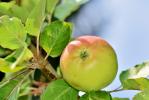Horizon Europe Vinny Project: Advanced nanoencapsulation of bio-based pesticides and fertilizers for circular and sustainable viticulture
- Type Project
- Status Signed
- Execution 2024 -2028
- Assigned Budget 7.835.161,00 €
- Scope Europeo
- Main source of financing Horizon Europe 2021-2027
- Project website Proyecto VINNY
Intensive viticulture often relies on the use of synthetic chemicals, which can degrade soil health and harm ecosystems. These practices also contribute to pollution and reduce biodiversity in vineyards. As climate change and pests increasingly challenge traditional methods, the need for more sustainable alternatives grows. The EU-funded VINNY project addresses this situation by developing environmentally friendly solutions for vineyard management.
VINNY focuses on the development of sustainable, low-cost nanoformulated biopesticides (nanoBPs) and biofertilizers (nanoBFs) to improve vineyard resilience. Using nature-based circular economy principles, VINNY harnesses grapevine microbiomes and repurposes industrial byproducts to develop effective, biodegradable treatments. The project aims to transition vineyards from intensive to sustainable practices, improving grape quality and productivity across Europe.
VINNY's main objective is the development of sustainable, low-cost nanoformulated biopesticides (nanoBPs) and biofertilizers (nanoBFs) to contribute to more resilient vineyard systems. The application of VINNY's nanoformulations will contribute to the definitive shift from intensive to sustainable agriculture in viticulture on a global scale. This will be achieved using nature-based green circular economy concepts:
- A full-cycle approach from vine to vine plant, where metabolites and bioactives based on microbiomes from different vineyards in Europe (Portugal, Spain, Austria, and Denmark) will be investigated to create potent cocktails with antifungal and phytosanitary properties.
- Industrial by-products, namely carbon and nitrogen (N), phosphorus (P) and potassium (K), NPK-rich actives from sludge, originating from local wastewater treatment plants (WWTPs) in Austria and Denmark from the meat industry (MI), to be used as biofertilizers.
The project focuses on stabilizing and enhancing the efficacy of these active ingredients through the use of two different bioplatforms: the nanoformulation/encapsulation of BPs and the impregnation of agrotextiles with FBs. The platforms will be based on biodegradable, renewable, and abundant plant bioresources or, in the case of biopesticides, on dynamically active nanoformulations, i.e., based on stimuli-responsive biopolymers capable of releasing the active ingredient and enhancing its efficacy in response to external stimuli (wind) and/or internal cues (enzymes in fungi). VINNY will then validate these platforms according to their efficacy through in vitro, ex vivo, and in-plant testing against prevalent grapevine pathogens. VINNY will assess their biocompatibility, confirm the absence of nanotoxicity, and conduct field trials with the best-performing candidates in four EU vineyards. This holistic development approach will enable the optimization and adaptation of viticultural practices toward increased grape quality and productivity.
Identify and exploit novel bioactive agents as biopesticides (BPs). Develop biofertilizers (BFs) based on nutrient-rich biochar from solid waste and blood waste in the meat industry. Bioactive platforms: nanoencapsulation of BF/BP agrotextiles. Validate in vitro, in planta, and in the field nanoformulated BPs and BFs against related standards. Provide safety and risk assessment, short-, medium-, and long-term life cycle assessment (LCA), life cycle costing (LCC), and a safe and sustainable by design (SSbD) approach for project implementation.
- FUNDACION IMDEA MATERIALES (IMDEA Materials)
- Project website (CORDIS)
- Website of the University of Minho
- CHT GERMANY GMBH website
- SOFIA UNIVERSITY ST KLIMENT OHRIDSKI website
- AALTO KORKEAKOULUSAATIO SR website
- Website of ASSOCIAZIONE ITALIANA PER LA RICERCA INDUSTRIALE - AIRI
- UNIVERSITA CA' FOSCARI VENEZIA website
- OLEON NV website
- Website of INSTITUT NATIONAL DE RECHERCHE POUR L'AGRICULTURE, L'ALIMENTATION ET…
- PROCTER & GAMBLE SERVICES COMPANY NV website
- CHALMERS TEKNISKA HOGSKOLA AB website







